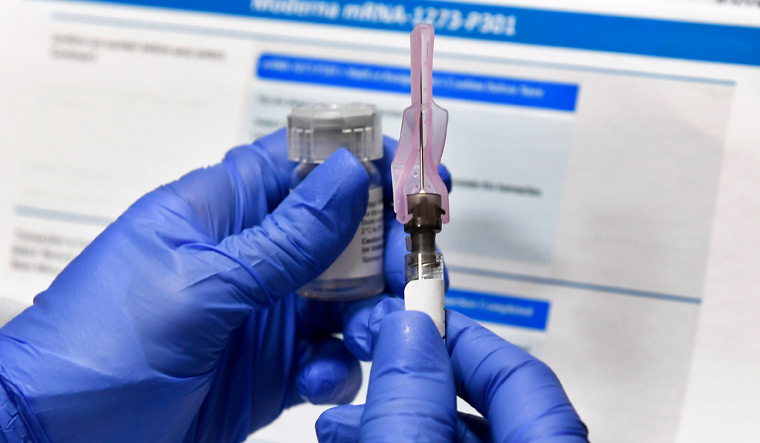Trials of the COVID-19 vaccine developed by Oxford University and AstraZeneca have raised eyebrows after it emerged that thousands of volunteers were given a lower dose by mistake.
For those who received the lower dose first, the vaccine’s efficacy was the highest at 90 per cent—while the results from giving volunteers two full doses of the vaccine showed a 62 per cent efficacy. Some 2,741 people received a half-dose of the vaccine followed by a full dose, the company had said. In a statement, Oxford later said that a difference in manufacturing processes led to later phases of the trial having a half-dose instead of a full one. After discussions with regulators, the decision was taken to push ahead with the two separate regimens.
"The combined analysis from both dosing regimens resulted in an average efficacy of 70 per cent," AstraZeneca had said. However, the incident has raised questions about the preliminary results of their experimental COVID-19 vaccine. For example, none of those in the low-dose group were over 55 years old—a demographic at greater risk from the coronavirus.
Now, AstraZeneca CEO Pascal Soriot has told Bloomberg that the company is likely to conduct an additional global trial to assess the vaccine’s efficacy.
A statement describing the error came days after the company and the university described the shots as "highly effective" and made no mention of why some study participants did not receive as much vaccine in the first of two shots as expected.
The new trial would be run instead of adding an arm to the ongoing US trial and would evaluate the lower dosage option that performed better than the full amount.
“Now that we’ve found what looks like a better efficacy we have to validate this, so we need to do an additional study,” CEO Pascal Soriot said, adding that it would probably be another “international study, but this one could be faster because we know the efficacy is high so we need a smaller number of patients.”
The AstraZeneca-Oxford vaccine is the likeliest candidate for the Indian context, as it requires relatively less refrigeration than the Moderna and Pfizer vaccine. Serum Institute of India—the world’s largest vaccine maker—has already prepared millions of doses.
SII on Thursday said the vaccine was safe and effective, with Indian trials progressing smoothly and with strict adherence to all protocols.
That said, varied age groups with different dosage forms will result in slight variations and efficacy. "We must be patient and not panic," it added.
SII is conducting clinical trials of AstraZeneca-Oxford's COVID-19 vaccine candidate in India.
"The Indian trials are running smoothly with strict adherence to all the necessary processes and protocols. So far, there are no concerns. However, we are going through the data that is available and will make further statement, if needed," SII said.
With inputs from PTI


